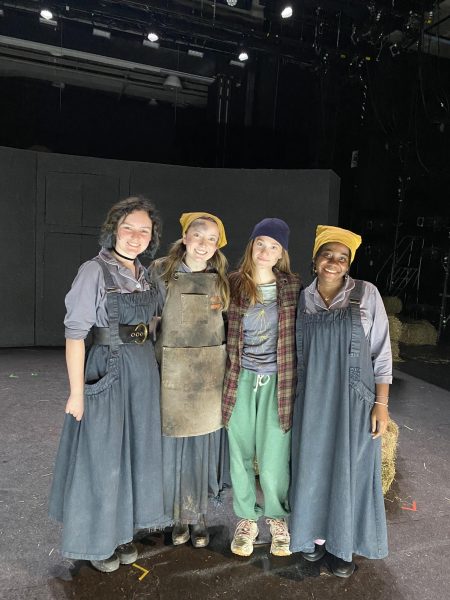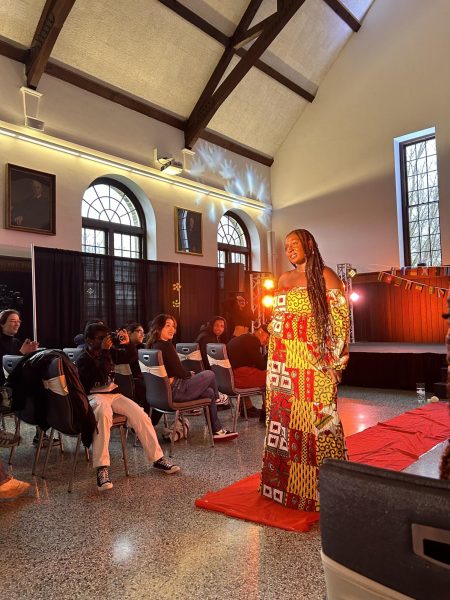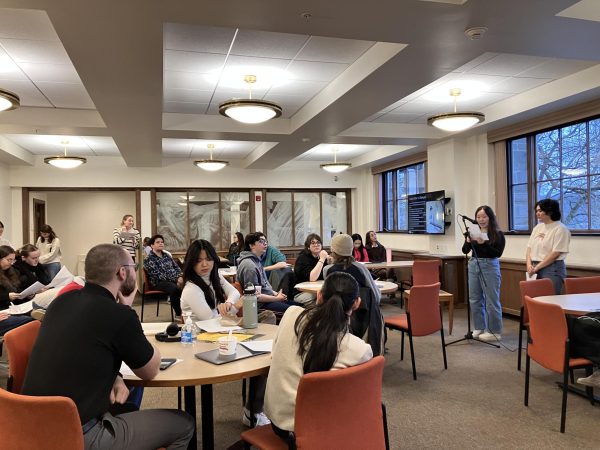Professor Arif Camoglu Discusses Ottoman Slavery and the Global Novel
A group of students, faculty and community members gathered in the Ho Lecture Room to hear Professor Arif Camoglu, Consortium for Faculty Diversity postdoctoral fellow in Middle Eastern and Islamic studies, lead a discussion on the fictional representations of Ottoman slaves in global novels on Feb. 1.
Camoglu introduced his ongoing project of improving English-speaking studies of the Ottoman Empire by examining Ottoman history through fictional literature from the 18th and 19th centuries. Specifically, the project considers the dynamics of imperial sovereignty by looking at Ottoman and Turkish literary sources as well as postcolonial discussions of imperialism.
“I’m grateful I attended the lecture because it introduced me to a topic I had no previous knowledge of, and it ultimately gave me a deeper understanding of the range of perspectives from which slavery has and continues to be viewed and portrayed in literature and society,” sophomore Caroline Hess said after the event.
In his presentation, Camoglu discussed how the study of historical writing benefits from fairly considering the extent of the Ottoman slave system and slave trade. Ottoman slavery was markedly different from that of plantation life in the U.S., despite being a legal and substantial part of the Ottoman Empire’s economy and conventional society. Throughout the lecture, Camolgu provided excerpts and quotes from Ottoman literature to show examples of the fictional portrayals of domestic enslaved women from books of the relevant time period. The presentation revealed the linkage of the institutions of family and slavery in the Ottoman Empire.
Associate Professor of English Javier Padilla Rios was also in attendance.
“Professor Camoglu’s lecture challenged our received notions of empire and slavery in the Ottoman context. His work is bringing to light a literary and historical archive that has been mostly ignored by scholars and critics. His research will be relevant not only to Middle Eastern studies, but to historians of empire and to literary scholars of the global novel.”
Camoglu also described the novel as an interesting form to see the overlap of slavery and patriarchal family structures. Oftentimes the enslaved person was the mediator of family, as well as a substitute for the nanny, mother, maid or even lover. The romanticism of possible social mobility for enslaved women was characteristic of 18th and 19th century literature. However, as Camoglu pointed out, this mobility was only available to white women and was very rare, despite being used by some to justify Ottoman slavery. Furthermore, channels of social mobility such as education often had more to do with increasing the property value of an enslaved woman, rather than her liberation.
“The potential for integration of the slave was used in an effort of resistance to take slavery seriously in Ottoman literature, which pays lip service to the legacy of Ottoman exceptionalism,” explained Camoglu.
Camoglu emphasized the importance of recognizing the violence of the Ottoman imperial position in the global slave trade. He argues that the connection between the Ottoman institutional family and domestic slavery should be considered in the genre of the global novel.






